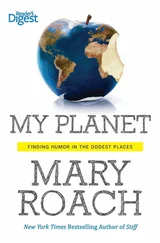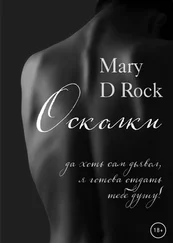Today Purvis, along with a fellow instructor, will march in a hot spell of mechanical making. As subjects in a heat tolerance study, they will walk fast and uphill for two hours at 104 degrees Fahrenheit on a treadmill inside the “cook box” at CHAMP: the Consortium for Health and Military Performance, part of the Uniformed Services University of the Health Sciences. Some individuals are constitutionally prone to heatstroke and other heat illness, and the Army would like to have a way to know who they are before sending them out into the scorch of a Middle East afternoon with a hundred pounds of gear and other human beings whose lives depend on them.
Purvis leans against a counter, shirtless, filling out a “mood state” questionnaire. I see him put a check in the “Moderately” column beside the descriptor “full of pep.” Pep isn’t really a word for Josh Purvis. Pep wants some spring to the step, some twinkle, a tendency to whistle. I don’t believe Josh Purvis whistles. His features, while handsome, have a hard set to them, a sort of coiled restiveness.
The researcher, a fit blonde with a luminous complexion, tells Josh to make a fist. She and her colleagues are looking for biological and genetic markers that might lead to a simple blood test to identify combatants prone to heat illness, so their superiors could keep closer tabs on them. However, her request is unrelated to the drawing blood. “Josh, let us see your muscle.” The researcher is Josh’s mother, Dianna Purvis.
Josh’s arms remain at his side. “ Mom .”
Purvis the elder holds out an apple from the pre-test meal pack. “Josh, eat your snack before you go in.”
“Mom, s top .”
I can’t see which box Josh has checked beside the descriptors Uneasy, Peeved, and On Edge, but I’d mark them “a little bit.” His mother has put this down to “the probe.” He will be having his tolerance tested—heat and otherwise—by way of a rectal probe: a slim, flexible, insertable thermometer. The rectal probe is attached by a six-foot wire to a piece of portable hardware labeled Physitemp Thermes. It is the size of a hardback book, and heavy as a brick. It’s heavy enough that if you set it down on a counter, forget that you are tethered to it, and walk away, you will be very effectively halted before you drag it off the counter.
The rectal thermometer enables the researchers to monitor their subjects’ core temperature. Like any complex bioelectrochemical system, the human body works best when its vital components are humming along in a set temperature range. For humans, that’s roughly ninety-seven and a half to ninety-nine and a half degrees Fahrenheit. When your core temperature begins to rise, either because it’s hot where you are or you’re toiling hard, or both, the body takes measures to bring it back to the happy range. First and foremost, it sweats.
Until this trip, I thought of sweat as a sort of self-generated dip in the lake. But sweat isn’t cool. It’s warm as blood. It essentially is blood. Sweat comes from plasma, the watery, colorless portion of blood. (A dip in the lake cools by conduction: contact with something colder. Highly effective but not always practical.) Sweat cools by evaporation: offloading your heat into the air. Like this: When you start to overheat, vessels in your skin dilate, encouraging blood to migrate there. From the capillaries of the skin, the hot plasma is offloaded through sweat glands—2.4 million or so—onto the surface of the body to evaporate. Evaporation carries heat away from the body, in the form of water vapor.
It is an efficient system. A human in extreme heat can sweat as much as two kilograms an hour, over a span of a few hours. “Roughly speaking, 10 kilograms loss of sweat [over the course of a day] is not rare for workers in overheated factories and active soldiers stationed in the tropics,” states the late Yas Kuno, longtime professor of physiology at Nagoya University School of Medicine, in the 1956 edition of Human Perspiration. “One will be struck with wonder… when he thinks that such a large amount of sweat is produced from glands which are extremely small in size.” Though humans have, by weight, more than twice as much salivary gland tissue as sweat gland tissue, they are capable of producing six times as much sweat as spit.
Human Perspiration is itself a prodigious output: 417 pages. There was a lot to report, [26] Kuno and his team spent a great deal of time exploring the differences between thermal and emotional sweating, the latter wetting the palms and soles and the former, everything but. One researcher excised a patch of leg skin and grafted it to his palm. Would the patch henceforth, unlike normal leg real estate, sweat when the man was nervous? (Yes.) Would it remain dry in emotionally trying circumstances, such as when colleagues tittered over the sudden and suggestive appearance of hair on one’s palms? (No.) The emotional sweat work conferred a corollary talent for lab-based sadism. The researchers invented and delivered terrible news to their subjects. They tasked them with oral arithmetic problems. They threatened to administer painful shocks, provoking “the uneasiness of expecting pain.” Kuno was the Stanley Milgram of perspiration.
in part because Kuno’s sweat studies spanned thirty years, and in part because he had a lot of collaborators: “some 65 in all.” The book includes a collection of black-and-white photographs of Japanese men in thongs, sweating after a session in the Perspiration Chamber. Because the men had been dusted with a special starch that turns black on contact with sweat, their torsos, foreheads, and upper lips are speckled with what appears to be an especially virulent mildew. One set of images highlights the surprising variety of sweat distribution patterns on the human scalp. [27] The human head sweats like a mother. As the cradle of the brain, it’s served by a lot of blood vessels, and those vessels, unlike the vessels of the body’s other extremities, don’t constrict. Thus head wounds bleed readily and faces flush and sweat. But it’s misleading to say, as one so often hears, that people lose 90 percent of their body heat via their head. “My father-in-law, when he sees me go out in winter with no hat, always tells me that,” says military research physiologist Sam Cheuvront. “I say, ‘If that’s true then I should be able to put on a tassel cap and go outside naked and retain 90 percent of my body heat.’” When in fact, he’d be losing heat through his exposed body parts. Though gaining my affection.
Rather than take a razor to their own heads, the researchers recruited “eighteen Buddhist Japanese priests who make it a custom to shave their heads” and, going forward, to ignore all calls from Nagoya University.
Outside of thermoregulation labs, sweat commands little respect, a fact that needled Kuno. “It is peculiar,” he wrote, “that the value of sweating is appreciated only by patients [who cannot sweat], who suffer greatly from heat, and not by ordinary people, who usually complain about too much sweat.” Jerks. To Kuno’s mind, nothing less than the march of civilization was forged by the indomitable human thermoregulatory system. “The human race inhabits the whole earth,… while the living zones for most animals are more or less confined. This privilege of the human race has partly been acquired by their intelligence, but their spreading over the torrid zone has only succeeded through the high development of the sweat glands.” Were it not for human perspiration, there would have been no Vietnam War, no Operation Iraqi Freedom, no Georgia-based Army Ranger School.
If sweating is so effective, why were there 14,577 cases of heat illness among active US Armed Forces personnel between 2007 and 2011? Because they work too damn hard. When sweaters exert themselves, the muscles they’re using begin to demand the blood that the body needs to use for sweating. The mildest consequences of this competition for blood are heat exhaustion and heat syncope—fainting. With blood flowing out to the skin for cooling purposes and, at the same time, into the muscles to deliver oxygen to fuel the body’s toil, it becomes harder to maintain the blood pressure needed to pump blood up to the brain. Without enough oxygen-carrying blood reaching your brain, you pass out. (Counterintuitively, overheated people sometimes pass out not in the midst of their exertions but when they stop and stand still; this is because contracting the leg muscles helps keep blood from pooling down there.)
Читать дальше












